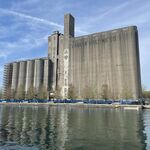The provincial government is poised to give municipalities the option to change the way local politicians are elected by letting voters rank their favourite candidates in a system that proponents say will result in greater diversity on councils.
Sources tell the Star that Ted McMeekin, Minister of Municipal Affairs and Housing, will unveil plans Monday to table legislation allowing Ontario municipalities to elect councils with ranked ballots as early as 2018. McMeekin will stress that the new system will be optional — no municipalities will be forced to adopt it.
“This is huge,” said Katherine Skene, co-chair of the Ranked Ballot Initiative of Toronto (RaBIT), a grassroots advocacy group. “When you look at first-past-the-post, it is actually the worst voting system when you have multiple parties and individuals. If this legislation passes, municipalities will have the choice to be more democratic, more inclusive and more diverse.”
Monday’s expected announcement could leave the City of Toronto behind the pack, say ranked-ballot proponents who watched last October as council made a surprising reversal of a 2013 decision to ask the province to permit the use of the new system. The controversial flip-flop also asked the province to dispense with the option for ranked-ballot elections in other municipalities — a request the Ontario government has evidently ignored.
The unexpected about-face, prompted by a last-minute motion tabled by Etobicoke-Lakeshore Councillor Justin Di Ciano, left the door open for public consultations, so the idea of ranked-ballot voting in Toronto isn’t out of the question, said Dave Meslin, creative director of the volunteer group Unlock Democracy.
“I believe the implementation of ranked ballots is inevitable. The only question is, will Toronto be a leader for democratic reform, or will we be a follower?” he said.
Under the ranked ballot system, voters are allowed a first-, second- and third-place choice, for example. A candidate who gets 50 per cent plus one of the first-place votes — a majority — wins. When no candidate wins a majority, the one with the fewest first-place votes gets cut. The second-place choices of the cut candidate’s voters are then allocated to the remaining candidates. The process continues until one candidate gets a majority.
The system, already used by Canadian parties during leadership races and by major cities such as San Francisco, Minneapolis and London, England, is fairer, proponents say, because it ensures voters’ wishes are better respected. Under the current first-past-the-post system, candidates can win with even a small percentage of the vote, thanks to vote splitting.
Meslin cited the example of Eglinton-Lawrence Councillor Christin Carmichael Greb, who won with just 17 per cent of the votes cast in the last election. A ranked ballot would avoid that scenario.
“Ranked ballots give more power to voters, but many politicians want to hold on to power and aren’t ready to compete in fair elections. So it will be interesting to see which councillors prioritize the needs of voters, and which politicians prioritize their own personal needs,” he said.
Di Ciano told the Star he believes ranked ballots do not eliminate strategic voting because voters ultimately have to consider how their second-place choices will affect results. Other councillors who supported Di Ciano’s motion have said ranked ballots make voting too complicated.
“There’s just as much strategy involved in voting under a ranked ballot system,” said Di Ciano, noting he feels the city’s consultations in 2013 on the new system weren’t truly public, and were instead dominated by “special interests.” He favours a referendum to gauge the public’s support.
“Let the public process happen, let’s get the city officials calling the public meetings, let’s record what the public is saying, let them understand that there’s no magic majority. You’re replacing people’s first-place votes with the second-place votes,” he said. “It does nothing to bring a better qualified cast of characters to council floor.”




